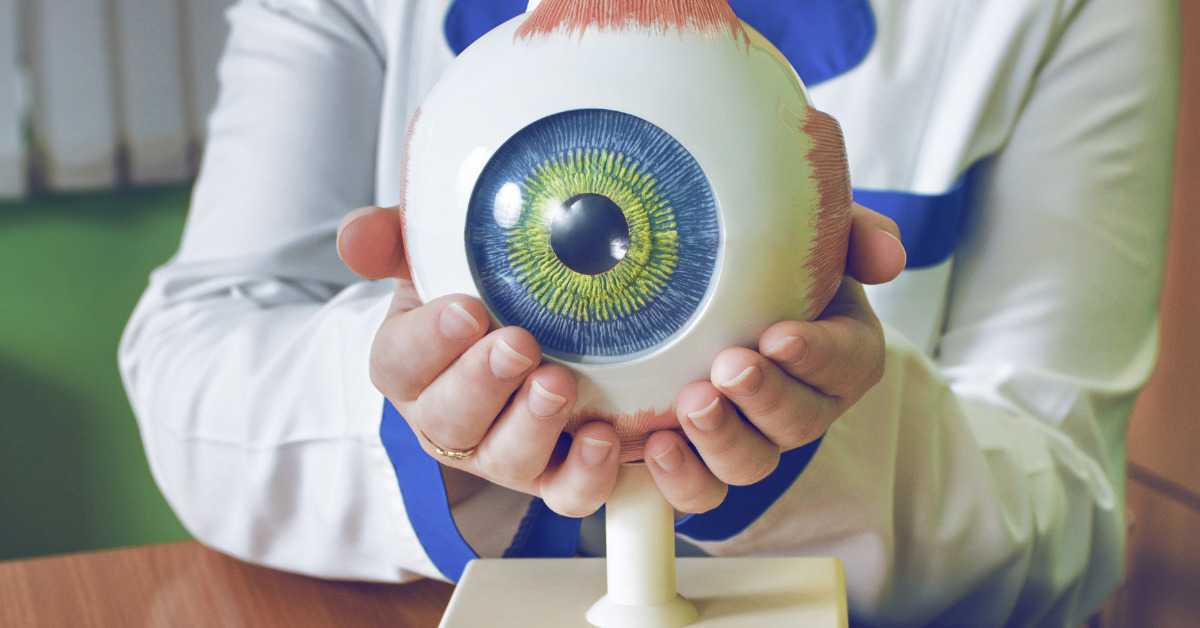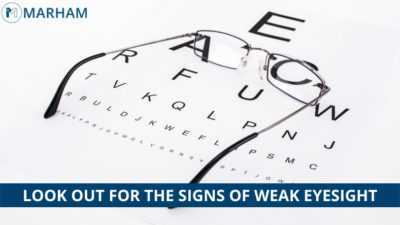Weak eyesight problem has grown much more common in the current scenario, when we are all more addicted to the use of screens and have a variety of poor eating habits and lifestyles, such as taking unnecessary stress and reducing sleeping hours.
Eye weakness has become a prevalent phenomenon in people of all ages, ranging from toddlers to the elderly. The extent of the weakening varies.
Signs that You have weak eyesight
It’s just as important to have frequent eye tests have annual physical checks, and most people should get their eyes examined once a year.
Regular monitoring and more repeated visits may be necessary if you have glaucoma, macular degeneration, diabetic retinopathy, or a family history of eye problems or disorders.
It’s critical to talk to your primary care doctor and your eye doctor about your health care condition and to make sure you follow their advice for follow-up appointments, prescriptions, and treatments. You can not underscore the importance of prevention in eye care.
If you notice any of the following changes in your vision, make an appointment with your ophthalmologist very once, even if you’ve recently seen your eye doctor:


1. Double Vision
Double vision is an issue that needs quick attention in the issue of weak eyesight. Whether it rarely occurs at random or regularly.
It happens when a person sees two pictures next to or on top of one another. It can create difficulty with balance, reading, and going about everyday activities right away.
2. Regular Squinting
Squinting limits the amount of light that enters the eye, reducing the size of the blurred picture. It might be a quick remedy for out-of-focus items, but it can also indicate vision problems.
Excessive squinting might indicate hyperopia (farsightedness) or myopia (nearsightedness) (nearsightedness). If your children or grandkids show this behavior, it might signify that they have amblyopia (lazy eye).
3. Eye strain or tiredness
It can be caused by a lack of sleep, a virus, a cold, or allergies; however, you should consult an eye doctor if it continues. It could indicate the presence of visual abnormalities, an eye infection, or an undiscovered health issue if your eyes feel tired from daily activities like watching TV or reading (e.g., diabetes).
4. Blurry close-up vision
Hyperopia is a condition in which a person cannot see objects closer to them. It is one of the issues of weak eyesight. As a result, things closer to them seemed a little blurry, and this blurriness can increase with gradual eye weakening, or in this case, hyperopia development.
5. Blurry distant vision
Myopia is when a person cannot perceive objects put at a proper distance from them, in contrast to the situation described above. Nearsightedness is the popular word for it, and just like hyperopia, the condition of blurriness can worsen with time if due care is not provided.
6. Headaches
Headaches are frequently caused by tension or pressure on our eyes when trying to focus or squint. Blurry vision or seeing double causes your eyes to be overworked, resulting in severe headaches.
7. Requiring powerful light
Presbyopia is marked by the need to turn on lights to see clearly.
It may be time for reading glasses if you notice yourself turning on more lighting in a room than normal.
8. Night vision difficulties
If you’re having trouble seeing clearly in dim light, your eyes’ ability to adjust to darkness has decreased. It could indicate cataracts, retinitis pigmentosa (if you’re under 30), diabetes, zinc or vitamin A deficiency, or a LASIK surgical adverse effect. Moreover, prolonged exposure to intense sunlight might impair night vision for two days.
9. Glare
If you have to protect your eye even when the sun’s rays aren’t powerful, your eyes have grown extremely sensitive to glare and reflected light from the sun. You must see a doctor right away. The difficulty can be caused by nearsightedness, farsightedness, cataracts, or other eye problems.


How can I keep my eyesight from weakening?
Consider the following suggestions for reducing or preventing eye strain.
- Make changes to the lighting: It may be easier for your eyes to watch television if the room is dimly lit.
- Take some time to relax: Take frequent breaks from close work and rest your eyes by glancing away from the computer screen.
- Time spent in front of the screen should be limited: It is particularly crucial for youngsters, who may not recognize the link between prolonged gazing, eyestrain, and the need to rest their eyes regularly.
- Improve the quality of the air in your room: Using a humidifier, changing the temperature to lessen blowing air, and avoiding smoking are some modifications that may help prevent dry eyes. It makes the eyes comfortable too.
- Choose the best pair of glasses for you.:If you require glasses or contacts and work at a computer, you might consider purchasing computer-specific glasses or contact lenses, and they can help you see better.
Conclusion
Eye disorders may take various forms, and the only way to adequately tackle them is to have a trained, experienced eye specialist. Although having one or more of these symptoms does not always indicate that you have a problem, it is critical to have your eyes examined by a trained eye care specialist to determine the reason for these changes.
You can contact an eye specialist at Marham. Pk to get expert advice for your eye weakness and proper treatment.
| Android | IOS |
|---|---|
  |
  |
FAQs
1. Is it possible to improve your eyesight naturally?
Unfortunately, refractive errors such as myopia, hyperopia, astigmatism, and presbyopia are irreversible. You can try home remedies just for improving eye tiredness.
2. How can you tell if your vision is changing?
Among the signs and symptoms are:
- A hazy vision is exacerbated by bright light.
- Poor night vision, especially when driving; difficulty seeing movement, details, or objects (especially street signs)
- glare from car headlights or strong sunshine that is blinding or unpleasant.
- To read, you need a brighter light source.
3. Is it possible to become dizzy due to impaired vision?
Dizziness and balance issues can be caused by vision disorders such as eye strain and impaired eyesight. Learning, mobility, and keeping appropriate posture and balance require visual information.

